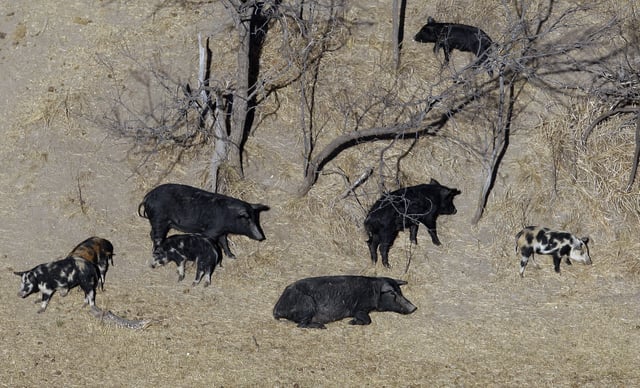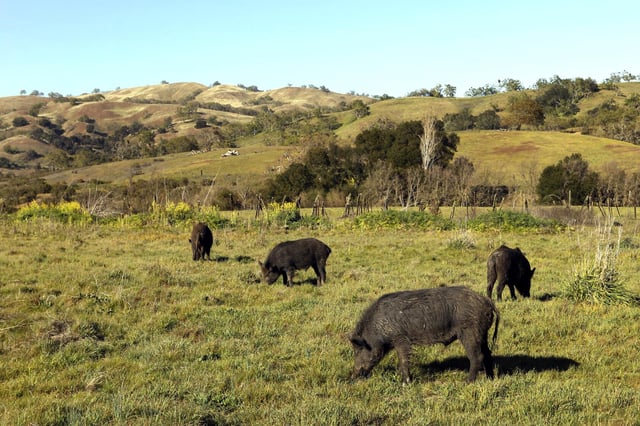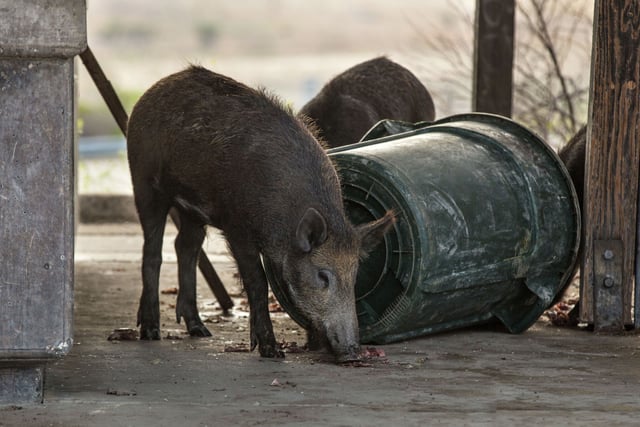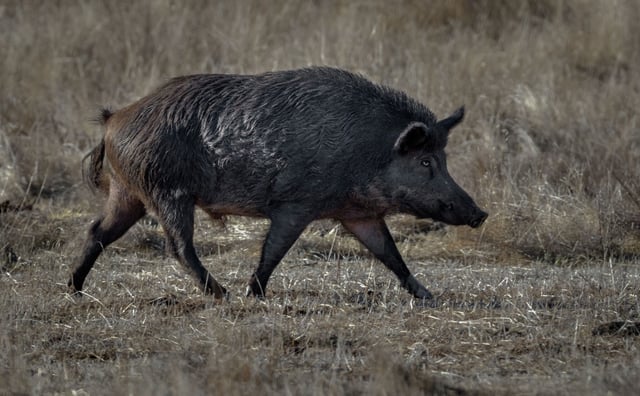Overview
- CDFW’s Wildlife Health Laboratory confirmed diphacinone in the liver and stomach contents of wild pigs captured in Monterey County with neon-blue muscle and fat in March.
- Officials have warned hunters and trappers to report any unusual discoloration in game meat and to avoid eating animals that may be contaminated.
- The state’s January 2024 ban on most diphacinone uses includes agricultural exemptions that allowed continued application at rodenticide bait stations.
- No new reports of blue-tinged wild pigs have surfaced since March as wildlife biologists assess the contamination’s geographic scope in central California.
- Studies show anticoagulant rodenticides bioaccumulate and resist breakdown during cooking, creating secondary poisoning risks for predators and humans.



